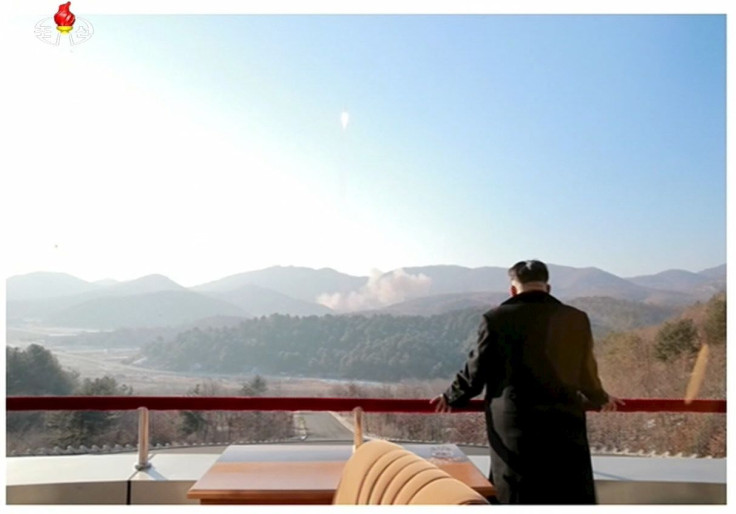North Korea’s Rocket Launch Draws Widespread Condemnation, ‘Regret’ From China

UPDATE: 2:40 a.m. EST — North Korea's launch of a long-range rocket risks a "serious exacerbation" of the situation in the Korean peninsula and could do "serious damage" to regional security, the Russian foreign ministry said Sunday.
"The policy chosen by Pyongyang cannot help but incite a strong protest. We insistently recommend that the DPRK administration think whether the policy of opposing the entire international community meets the interests of the country," the ministry said, in a statement.
Original story:
North Korea’s rocket launch Sunday, which it claims put a satellite into orbit, has drawn international condemnation. At the request of Japan, South Korea and the United States, the United Nations Security Council was expected to hold an emergency meeting Sunday morning in New York, according to media reports.
“It is deeply deplorable that the Democratic People’s Republic of Korea (DPRK) has conducted a launch using ballistic missile technology in violation of relevant Security Council resolutions on 6 February 2016 despite the united plea of the international community against such an act,” a spokesman for UN Secretary-General Ban Ki-moon said, in a statement released Sunday. “The Secretary-General reiterates his call on the DPRK to halt its provocative actions and return to compliance with its international obligations.”
While Pyongyang claimed the rocket was launched to advance its space program and to put a new Earth observation satellite — the Kwangmyongsong 4 (Shining Star 4) — into orbit, other countries, including the U.S., denounced the launch as a cover for a missile test conducted in defiance of U.N. sanctions.
“This is the second time in just over a month that the DPRK has chosen to conduct a major provocation, threatening not only the security of the Korean peninsula, but that of the region and the United States as well,” U.S. Secretary of State John Kerry said in a statement. “We reaffirm our ironclad commitment to the defense of our allies, including the Republic of Korea and Japan. We will continue to work with our partners and members of the UN Security Council on significant measures to hold the DPRK to account.”
Japanese Prime Minister Shinzo Abe reportedly said his country would “take action to totally protect the safety and well-being of our people,” while South Korean President Park Geun-hye called the launch an “intolerable provocation.”
The South Korean government also said Sunday it was ready to begin talks with the U.S. over the deployment of an advanced missile-defence system — the Terminal High Altitude Area Defence (THAAD) — to South Korea to respond to the threat posed by the North's missile program.
“If THAAD is deployed to the Korean peninsula, it will be only operated against North Korea,” Ryu Je-seung, a senior official at the South Korean defence ministry, reportedly said.
Meanwhile, China — North Korea’s main ally —also expressed “regret” that Pyongyang had carried out the launch “in spite of the pervasive opposition of the international community.”
“We believe that the DPRK has the right to make peaceful use of the space, but this right is subject to restrictions of the Security Council resolutions,” Chinese Foreign Ministry Spokeswoman Hua Chunying said in a statement. “ The Chinese side hopes that relevant parties could react with calm and caution, refrain from taking actions that may further escalate tensions on the Korean Peninsula.”
The launch of the long-range rocket follows a nuclear test in January that North Korea boasted was a hydrogen bomb — a claim disputed by the U.S. and its allies. The country’s last long-range rocket launch, in 2012, put what it called a communications satellite into orbit, but no signal has ever been detected from it.
© Copyright IBTimes 2024. All rights reserved.





















